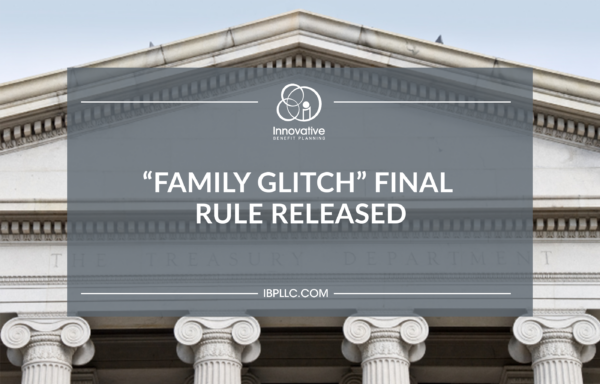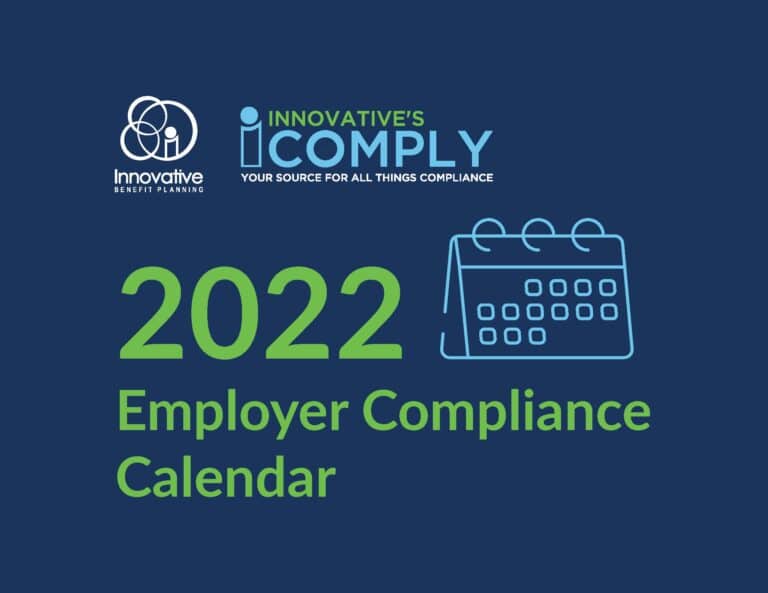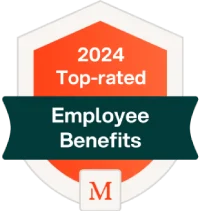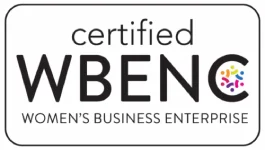“Family Glitch” Final Rule Released

Published October 13, 2022, The Department of Treasury released finalized regulations that make the premium tax credit (PTC) for Marketplace health coverage available to more individuals starting in 2023. Under the Affordable Care Act (ACA) regulations, employer-based health insurance is deemed “affordable” if the employee’s contribution for self-only coverage does not exceed the affordability threshold in a given year (9.12% in 2023). Those who do not have access to affordable employer-based coverage may qualify for a PTC through the healthcare marketplace. As a result of the previous definition of affordability, an estimated 5 million people fell into what is known as the “family glitch,” which prevented them from receiving a subsidy through the marketplace as the determination of whether the coverage met the affordability threshold is focused on self-only coverage, not family.
Under the new rule, affordability of employer-sponsored coverage for an employee’s spouse or tax dependents will be based on the cost of covering the employee and their family members. Starting in 2023, the plan will be deemed affordable for related individuals only if an employee’s required contribution for family coverage does not exceed the indexed percentage of an employee’s household income (9.12%). Further, under the new regulation, employer-sponsored plans will need to ensure a plan provides 60% minimum value coverage to related individuals. Specifically, the rule states, an eligible employer-sponsored plan provides minimum value to a related individual only if, in addition to covering at least 60% of the total allowed costs of benefits provided to the related individual, the plan benefits include substantial coverage of inpatient hospital services and physician services.
Despite this new guidance around ACA affordability, applicable large employers (ALEs) will not need to adjust the group health plan designs to address the requirements under the final rule. Additionally, any affordability safe harbor choice under the employer shared responsibility payment (ESRP) rules can remain unchanged as well. Per the ACA, the employer mandate requires certain ALEs to offer coverage to employees and dependents. The ESRP penalties for violating the mandate will be triggered only if an employee receives PTCs through the Marketplace. The final rule does not change these obligations, but rather extends PTCs to only the family members of employees not offered affordable employer-sponsored family coverage. Employees will continue to be barred from marketplace subsidies if they are offered affordable employee-only coverage through their employer.
The IRS provides guidance for non-calendar year employer plans and individual coverage health reimbursement arrangements (ICHRAs). The final rule states, as of 1/1/2023, spouses and dependents enrolled in non-calendar year employer-sponsored coverage, that is not associated with the cafeteria plan may, subject to plan rules, be able to disenroll from employer coverage and enroll in a qualified health plan (QHP) through the Marketplace. Further, spouses and dependents enrolled in an employer-sponsored cafeteria plan through the employee, will be able to discontinue the employer coverage during the plan year and enroll in a QHP through the Marketplace, and that a PTC should be allowed for the coverage, assuming any other requirements are met. The IRS issued guidance clarifying the rules for cafeteria plans. Finally, the final rule does not alter the affordability rules for ICHRAs. If a family member is eligible for coverage under an ICHRA, they are generally prohibited from obtaining a PTC; however, if they are ineligible for coverage under the ICHRA, then they would be eligible for a PTC through the Marketplace. Future guidance around ICHRAs is anticipated.
While the majority of the rule goes into effect for the 2023 tax year, the Departments have coordinated to ensure that state and federal marketplaces are able to implement the changes ahead of the 2023 open enrollment period, which begins November 1st. To review the complete final rules, see here.

2022 Employer Compliance Calendar
Are you finding it difficult to keep up with the constant changes in the compliance landscape? We understand that HR professionals have other important items on their plate so we have put together a 17 page calendar that will insure employers are meeting deadlines to remain compliant in the workplace. Click below to download our calendar!
Categories
Archive








